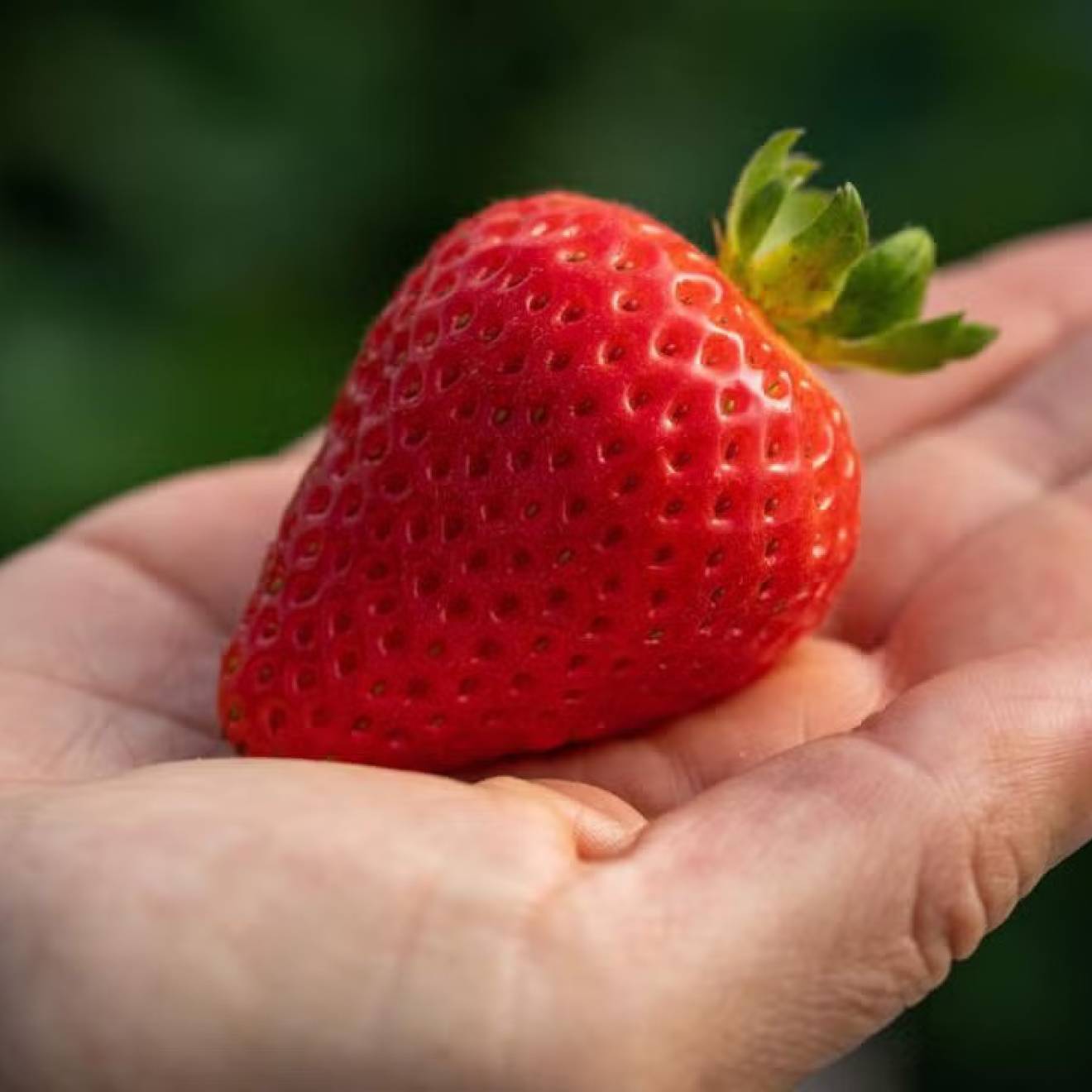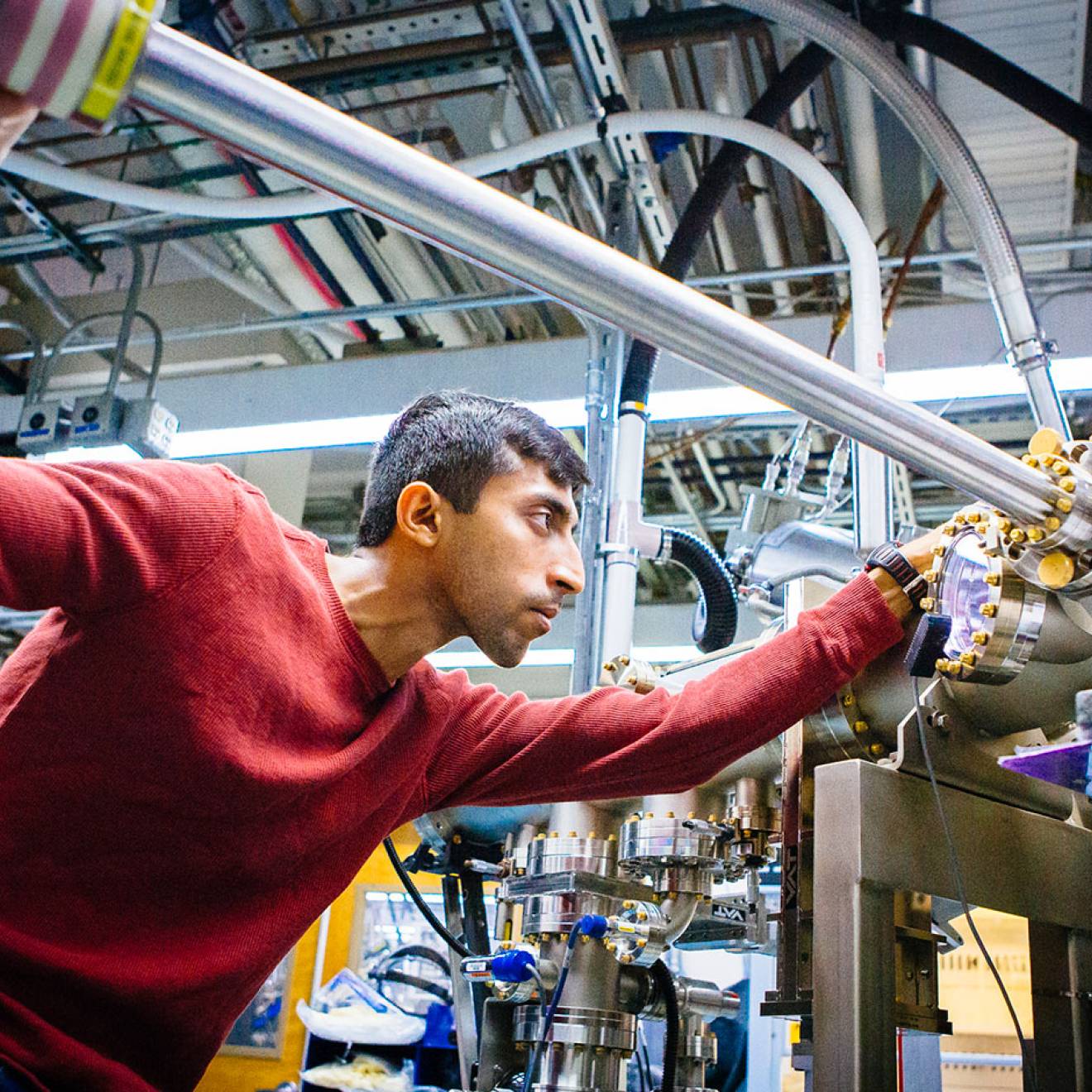Alison Hewitt, UCLA
When you bring together two brothers — one a Pulitzer Prize-winning food writer and the other, a respected environmental advocate and scientist — you’re going to hear a lot about sustainability, food and, of course, sustainable food.
In their discussion, Jonathan Gold, the Los Angeles Times restaurant critic, noted how important it is for food critics to research the sustainability of the food they are recommending. And Mark Gold, UCLA associate vice chancellor for environment and sustainability, called for a model for passing future environmental legislation that would be palatable to restaurants, fishermen and other industries.
The brothers were presented “for dessert” at the end of a four-hour sustainable food event at UCLA on April 2, at which they followed panels of celebrity chefs and other experts in the field. The nonprofit Chefs Collaborative and UCLA co-hosted the series of sustainable food panels, which covered everything from the greenhouse gases emitted by agriculture to the environmental value of pâté.
With Mark’s long history of ocean advocacy in his previous job as director of the environmental nonprofit Heal the Bay, and Jonathan’s adventurous willingness to eat most any sea creature, the obvious topics of conversation between the two UCLA alumni were sustainable seafood, seafood monitoring and fish fraud.
“There’s no such thing as red snapper on a menu that’s red snapper — it’s wrong almost 100 percent of the time,” Mark said. “We don’t really have effective monitoring programs on seafood.”
And while more seafood is becoming available locally, an estimated 90 percent of the seafood consumed in the United States is imported — much of it caught here, exported for processing, and imported back, the brothers noted.
“In the '80s, sea urchin was disgusting,” Jonathan said, recalling how it was caught off Santa Barbara, shipped to Tokyo and then imported back. “It didn’t really profit from its long sea voyage.”
While local sea urchin can now be purchased without the international detour, many other seafoods can’t.
Corie Brown, a member of the Chefs Collaborative and the event’s organizer, chimed in to ask what could be done to prevent local seafood’s export-import journey. “It’s too absurd,” she said.
Mark agreed and shared how he had helped achieve legislative changes when he headed Heal the Bay.
“The key thing always was that the environmental community would talk to the affected industry and then figure out what the right path was, and then you’d go forward and talk to the state … That dialogue needs to be restarted,” said Mark, who currently heads UCLA’s Sustainable LA Grand Challenge, a UCLA research initiative that aims to transition L.A. County by 2050 to 100 percent renewable energy and 100 percent locally sourced water, while enhancing ecosystem and human health.
He held out hope that California could create an eco-label or menu requirement identifying where a fish was caught and how many miles it had traveled. Although legislation for that kind of labeling has yet to pass, something similar has taken hold on restaurant menus, he pointed out.
“Whether you like it or not, you’re going to see how many frickin’ calories there are in everything you eat, and who would have ever thought that would become public?” Mark said. “So if that threshold got crossed, we should get to a threshold where we actually know what we’re eating a lot better than we do now.”
“Do you think it’s possible to organize L.A. chefs on something like this?” Brown said.
“I think he could do it. I sure couldn’t,” Mark said. “It’s not going to work unless it’s led by the very top chefs in L.A.”
Brown put Jonathan on the spot. “Can you do that?”
“At this point, when I see people do something wrong, I will call it out,” Jonathan said, noting that in his Los Angeles Times reviews he takes restaurants to task if, for instance, they sell bluefin tuna. Now, he said, when he goes to one of his favorite sushi places, instead of shouting a greeting, the chef shouts, “No bluefin!”
While on his seventh visit to a restaurant that specialized in grilled snook when he was nearly done with his review, one of the owners confided to him that snook was getting harder to catch.
“I started to freak out a little because I didn’t want to encourage people to eat a fish that was endangered,” he said. He did some reading and learned that while it was overfished near Florida, it remains abundant in the Pacific, and off the list of threatened species.
“I think it’s necessary for me to do my homework, and for people doing my particular job to do their homework” to make sure they can recommend the restaurant and food they are reviewing, Jonathan said.
Mark gave Jonathan credit for navigating the sensitive cultural issues around a proposed shark fin ban in 2011, when legislation to protect endangered sharks stalled because it came across as “white conservationists telling Chinese people what to eat,” he said. When Jonathan agreed to write an op-ed at Mark’s urging, Jonathan’s longstanding interest in the cuisine and knowledge of the culture meant that his piece, “Shark fin soup: The taste of extinction,” was crucial.
“It was literally the key to passing that law,” Mark said. “He wrote it in such a culturally sensitive way and he was so highly respected by the Chinese community because of all the work he’s done in learning about these restaurants…. I still have my students read that op-ed as an example of how to write an op-ed in my class on leadership in water management. That’s an example of why I’m saying that having him working with top chefs is totally different from someone like me from an environmental group leading because he has a thousand-times-more influential following in the food world.”

